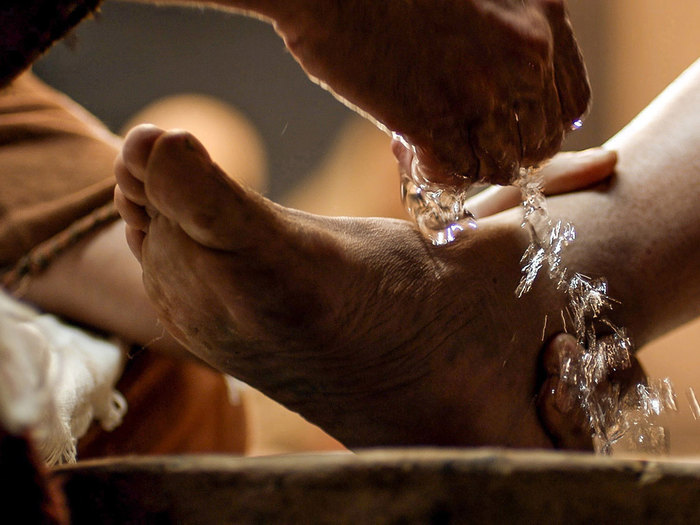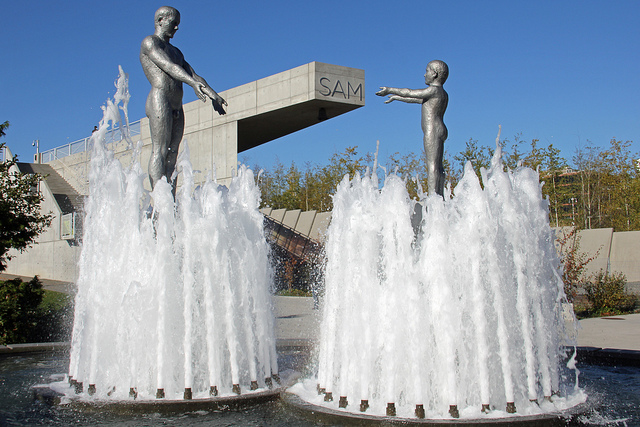Jesus Christ had a challenge. It had nothing to do with the Pharisees or Sadducees. Neither Herod nor Pontius Pilate had anything to do with it. His disciples, God bless their cotton socks, were just as miffed by it as anyone else. Jesus was linguistically challenged.

If Jesus had read Confucius who lived 400 years before him, he’d have much less problems than he did. He wouldn’t say things like: “Destroy this temple, and in three days I will raise it up”. [1]John 2:19 He would rather say: “if you kill me (or if I let you kill me), I will rise in three days”. People would simply laugh and walk away, and he would have lived longer, imparted more wisdom and performed more miracles.
Confucius had written, “If language is not correct, then what is said is not what is meant”. So for instance when Jesus said, “Take heed and beware of the leaven of the Pharisees and of the Sadducees”, [2]Matthew 16:6 it was understandable that his disciples thought he meant bread. For over 10000 years, leaven had always meant bread. Had he said, “beware of the doctrines or teaching or culture of”, that could never be mistaken for bread.
“If language is not correct, then what is said is not what is meant”
Then again, he was always going to struggle with language. Jesus was like a whale squeezing himself into a tin of sardine. His wisdom was transcendental. The language available to him was limited. Moreover, as Confucius concluded, in such circumstance, confusion was bound to reign.
One such confusion featured on the issue of forgiveness of sins. He raised Pharisaic eyebrows when he appeared to claim he had forgiven a woman’s sins. The woman had showed him much love and adoration and this scene ensued:
“And he said unto her, ‘Thy sins are forgiven’. And they that sat at meat with him began to say within themselves, ‘Who is this that forgiveth sins also?‘ ” [3]Luke 7:48-49
However, Jesus did not say, ‘I’ve forgiven your sins’. He did not credit anyone with dispensing the grace of forgiveness within that sentence. He simply said her debts were written off, but not by whom. The audience simply filled in the gaps and reached a conclusion that was suitable to their pre-disposition.
Of course, he might have avoided all the brouhaha had he phrased that sentence to capture what he said further down the line: “Your faith has healed you“. That would make clear that she did it all by herself. The Pharisees, Sadducees, disciples and, perhaps much later, St Paul would have learned, or be reminded, that we hold within us the keys to our own salvation.
In the absence of social justice and a high moral consciousness, sacrifices were abhorrent to God.
How sins may be purged is a recurrent theme in scripture. Offerings for sins are comprehensively spelt out in Leviticus. Between the blood of rams, turtledoves, and the dispatching of scapegoats into the wilderness, something has to give. [4]Leviticus 4-7
The book of Hebrews borrows from this practice when it records that:
“And almost all things are by the law purged with blood; and without shedding of blood is no remission.” [5]Hebrews 9:22
How true is this?
Different schools of thought within Judaism approached atonement by sacrificial ritual differently. For the priestly school, nothing worked better.
However, David differed. Writing from experience, [6]2Samuel 12:1-13 he taught thus:
“I acknowledge my sin unto thee, and mine iniquity have I not hid. I said, I will confess my transgressions unto the Lord; and thou forgavest the iniquity of my sin.” [7]Psalm 32:5
He went further. In Psalm 51, he wrote that a contrite and repentant heart were the only sacrifices acceptable for forgiveness. [8]Psalm 51:16-19 No blood sacrifice required. Not a drop!
How so?
God had protested through Prophet Jeremiah that he did not require blood sacrifice:
“Thus saith the LORD of hosts, the God of Israel; Put your burnt offerings unto your sacrifices, and eat flesh. For I spake not unto your fathers, nor commanded them in the day that I brought them out of the land of Egypt, concerning burnt offerings or sacrifices.” [9]Jeremiah 7:21-22
God speaking through Isaiah counselled that in the absence of social justice and a high moral consciousness, sacrifices were abhorrent to him. [10]Isaiah 1:11-18
Through Hosea he said he desired love and not sacrifice and a knowledge of him more than burnt offering. [11]Hosea 6:6.
In the period just after the Romans destroyed the Temple of Solomon, the only place where such sacrifices could be offered, an exchange between two Rabbis explored the fate of the sacrificial system.
The first Rabbi lamented that since the temple was gone, how would sins be atoned? The second Rabbi told him there was a substitute:
The doing of good deeds.
The former Rabbi in that exchange had clearly not read his scripture well. The latter wasn’t being original either. Scripture drips as much with the potency of good deeds as it does with the blood sacrifice. And it splatters the pages of both the Old and New Testaments.
“By mercy and love, truth and fidelity (to God and man – not by sacrificial offering iniquity is purged out of the heart…,” [12]Proverbs 16:6 AMP version said the wise.
“Wherefore I say unto thee, Her sins, which are many, are forgiven; for she loved much….” [13]Luke 7:47 said Jesus.
Loving in ancient Israel was not an abstract concept. It wasn’t something you felt in your heart and confessed with your mouth. It was something that you expressed in acts that healed. It was at work in acts that redeemed. It’s a culture that didn’t quite translate into Greek.
When Moses said, “Thou shall love”, it wasn’t an exhortation. It was The Law. That was what Christ said he came to fulfil, for greater love hath no man than this, that a man gave his life for his friends. [14]John 15:13 it wasn’t a feeling in his heart or some rosy philosophical treatise. It was about doing something that brought redemption, healing and reconciliation between heaven and earth.
Loving in ancient Israel was not an abstract concept. It was expressed in acts that healed. It was at work in acts that redeemed.
It was what made it possible for Ruth the Moabitess to rise above the limitations imposed upon her kind under Mosaic laws [15]Deuteronomy 23:3 to become the matriarch of the Davidic dynasty. [16]Ruth 4:13-17
It was what brought healing to the woman who washed Jesus’ feet with her tears and dried them with her hair. Jesus did not say, “Wow, well done lady. Wait till I die and I’ll wash you in my blood and your sins will disappear”. No. It happened right there and then. Before the death on the cross. Before the blood of the lamb. Forgiveness was earned through a demonstration of love.
The prophets by whose words the exegetes of the New Testaments confirmed the ministry of our Lord Jesus Christ were united in advancing the power of love over sacrificial rituals.
Micah pitted good works against sacrifices and left no one in doubt where he stood:
“Wherewith shall I come before the LORD, and bow myself before the high God? shall I come before him with burnt offerings, with calves of a year old? Will the LORD be pleased with thousands of rams, or with ten thousands of rivers of oil? shall I give my firstborn for my transgression, the fruit of my body for the sin of my soul? He hath shewed thee, O man, what is good; and what doth the LORD require of thee, but to do justly, and to love mercy, and to walk humbly with thy God?” [17]Micah 6:6-8
St Paul wrote a great deal about what it meant to love. [18]1Corinthians 13 He just failed to teach about love’s latent potentials.
Some quote Isaiah [19]Isaiah 64:6 to dismiss acts of righteousness as filthy rags, if they were done outside of fellowship with Christ. If we resist the temptation to quote text out of context, we would find that Isaiah was condemning vain oblations offered by “hands that were full of blood”. That theme was at the heart of his prophecy. [20]Isaiah 1:1-16; 64:5-7; 66:1-4 And it was a theme that Amos also explored. [21]Amos 4:4-5
Whereas ritual sacrifices for sin drew a largely lukewarm reaction from the prophets, through those prophets God did declare that good deeds moved him to impute righteousness to people. [22]Isaiah 58:6-8
Let’s take up our crosses and follow Jesus Christ.
Jesus gave fillip to that prophecy when he said he would impute righteousness to those who fed the hungry, clothed the naked and visited those in prison. [23]Matthew 25:31-40 And none of those in that parable appear to know him or had him on their radar when they went about their good works.
James the Just, brother and follower of our Lord, and the first leader of the Church in Jerusalem said true religion was to visit the fatherless and widows in their affliction. [24]James 1:27 St Paul wrote that we’re God’s workmanship created for good works. [25]Ephesians 2:10
Therefore let’s take up our crosses and follow Jesus Christ. Let’s walk in all of the ways that he walked. Let’s subscribe to his Lordship by doing the things he commanded. [26]Luke 6:46 Let’s subscribe to love’s redeeming power.
Let’s visit those in prison, give food to the hungry and provide roof for the destitute. [27]Matthew 25:31-40 God said if we did this, our RIGHTEOUSNESS would overshadow us. [28]Isaiah 58:8
References
| ↑1 | John 2:19 |
|---|---|
| ↑2 | Matthew 16:6 |
| ↑3 | Luke 7:48-49 |
| ↑4 | Leviticus 4-7 |
| ↑5 | Hebrews 9:22 |
| ↑6 | 2Samuel 12:1-13 |
| ↑7 | Psalm 32:5 |
| ↑8 | Psalm 51:16-19 |
| ↑9 | Jeremiah 7:21-22 |
| ↑10 | Isaiah 1:11-18 |
| ↑11 | Hosea 6:6 |
| ↑12 | Proverbs 16:6 AMP version |
| ↑13 | Luke 7:47 |
| ↑14 | John 15:13 |
| ↑15 | Deuteronomy 23:3 |
| ↑16 | Ruth 4:13-17 |
| ↑17 | Micah 6:6-8 |
| ↑18 | 1Corinthians 13 |
| ↑19 | Isaiah 64:6 |
| ↑20 | Isaiah 1:1-16; 64:5-7; 66:1-4 |
| ↑21 | Amos 4:4-5 |
| ↑22 | Isaiah 58:6-8 |
| ↑23, ↑27 | Matthew 25:31-40 |
| ↑24 | James 1:27 |
| ↑25 | Ephesians 2:10 |
| ↑26 | Luke 6:46 |
| ↑28 | Isaiah 58:8 |


